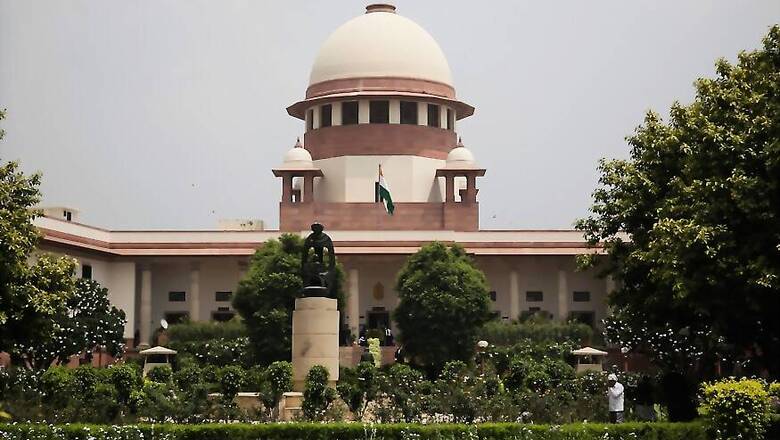
views
New Delhi: The Supreme Court on Saturday dismissed a petition seeking a review of its 2015 verdict striking down the National Judicial Appointment Commission (NJAC) Act that had brought back the collegium system for appointment of judges.
A five-judge bench led by Chief Justice Ranjan Gogoi said that the petition was dismissed on the grounds of delay and said there was no merit in it as well.
“There is a delay of 470 days in filing the present review petition for which no satisfactory explanation has been offered. The review petition is liable to be dismissed on the grounds of delay alone,” the court said in its order.
“Even otherwise, we have carefully gone through the review petition and the connected papers. We do not find any merit in the same,” said the five-judge bench.
On Friday, former Supreme Court judge Kurian Joseph criticised the Centre for intervening in the appointment of judges in the High Court, particularly the delayed selection of Justice KM Joseph.
Joseph denied that he had ever felt any government or political pressure, but said, “In the matter of appointment, the manner in which appointments are being delayed and the appointments have been selectively delayed, the appointments have been withheld. All this are in a way interference”.
NJAC Act,2014, would have accorded a major role to the government in appointing judges to the higher judiciary. It was perceived as an attempt to interfere with the independence of judiciary.
A five-judge Constitution Bench of the apex court had on October 16, 2015, struck it down, calling it "unconstitutional". The Act was meant to replace the 22-year-old collegium system of judges appointing judges.
While four out of the five judges of the constitution bench had held as unconstitutional and void both the NJAC Act and the Constitution (99th Amendment) Act 2014, Justice J Chelameswar had upheld the validity of the constitution amendment law.
"The system of appointment of Judges to the Supreme Court and Chief Justices and Judges to the High Courts, and transfer of Chief Justices and Judges of High Courts from one High Court to another, as existing prior to the Constitution (99th Amendment) Act, 2014 (called the "collegium system"), is declared to be operative," the apex court had said.
The Central government has criticised the Collegium system saying it has created an imperium in imperio (empire within an empire) within the Supreme Court.




















Comments
0 comment